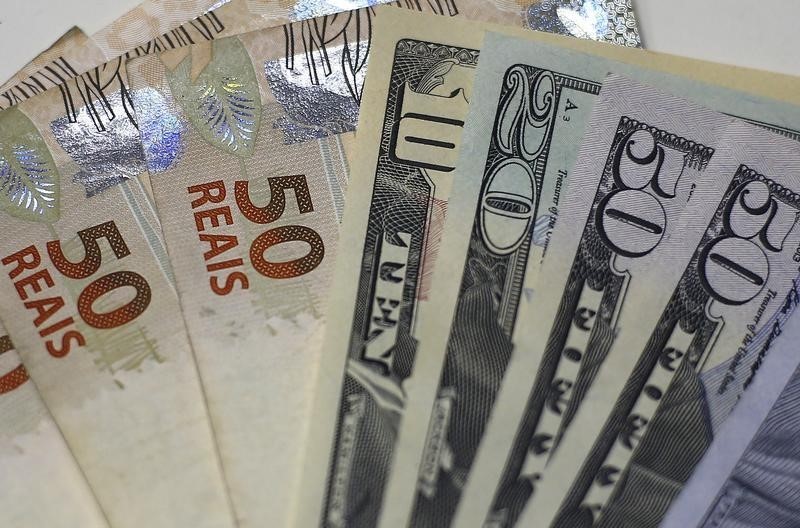By Vuyani Ndaba and Silvio Cascione
JOHANNESBURG/BRASILIA (Reuters) - The latest rally in emerging market currencies is unlikely to last long, a Reuters poll showed on Tuesday, with recent gains expected to be curtailed as soon as the economic policies of U.S. President Donald Trump become clearer.
Sentiment has been buoyant since Trump's arrival in the White House last month on hopes that a fresh round of economic stimulus will boost commodities prices and help sustain economic growth, even as trade barriers appear.
But currencies such as the Brazilian real, the Russian rouble and South Africa's rand are nevertheless set to give up gains over the next six months, according to the median forecasts of strategists in the poll taken Feb 2-6.
In six months, the real is expected to lose almost 6 percent to 3.29 per dollar, while the rand is forecast to give up 7 percent to 14.25. Russia's rouble is set to shed 3 percent to 60.90 per greenback, supported by rising oil prices.
Trump has kicked off his first few days in office mostly focusing on foreign policy and immigration and markets are awaiting more detail on his economic policies.
"We are not really seeing any dramatic shift in policy yet from the U.S. that impacts emerging markets in a negative way," said Peter Attard Montalto, an economist at Nomura in London.
"But that should come through (in) the next couple of months when we get the U.S. budget coming together."
With the U.S. economy already bumping up against full employment, Trump's promises on fiscal stimulus and tax reform could quickly spur higher inflation as would imposing tariffs on Mexican imports.
Most Fed officials see three rate hikes this year, a pace considerably faster than in 2016 and 2015. Higher U.S. interest rates usually weaken emerging currencies against the dollar.
João Pedro Resende, an economist with São Paulo-based bank Itaú Unibanco, also mentioned upcoming elections in Europe as a potentially risky event for emerging currencies in general, especially in France, where candidate Marine Le Pen promises to leave the currency union. The first-round vote will be in April.
Even the Mexican peso has gained in recent weeks, bouncing off record lows after it was bruised by Trump's rhetoric on the North American Free Trade Agreement (NAFTA), which he has threatened to ditch, and his promises of building a wall funded by a hefty border tax.
With most strategists betting that Mexico will fend off a credit rating downgrade in 2017, the peso is expected to stay stronger than its record low of 22 per dollar despite some losses projected for the next 12 months, the poll showed, with chances of a short squeeze soon.
The lira <TRYTOM=D3>, already one of the worst performing emerging market currencies this year, is expected to see more pain ahead, with strategists putting it at 3.88 in the next 12 months, from 3.67 now.
The lira is down around 4 percent this year, adding to double-digit declines last year and the year before. It has been hit by concerns about a slowing economy, political uncertainty, and the central bank's ability to tame inflation given that President Tayyip Erdogan is opposed to higher interest rates.
